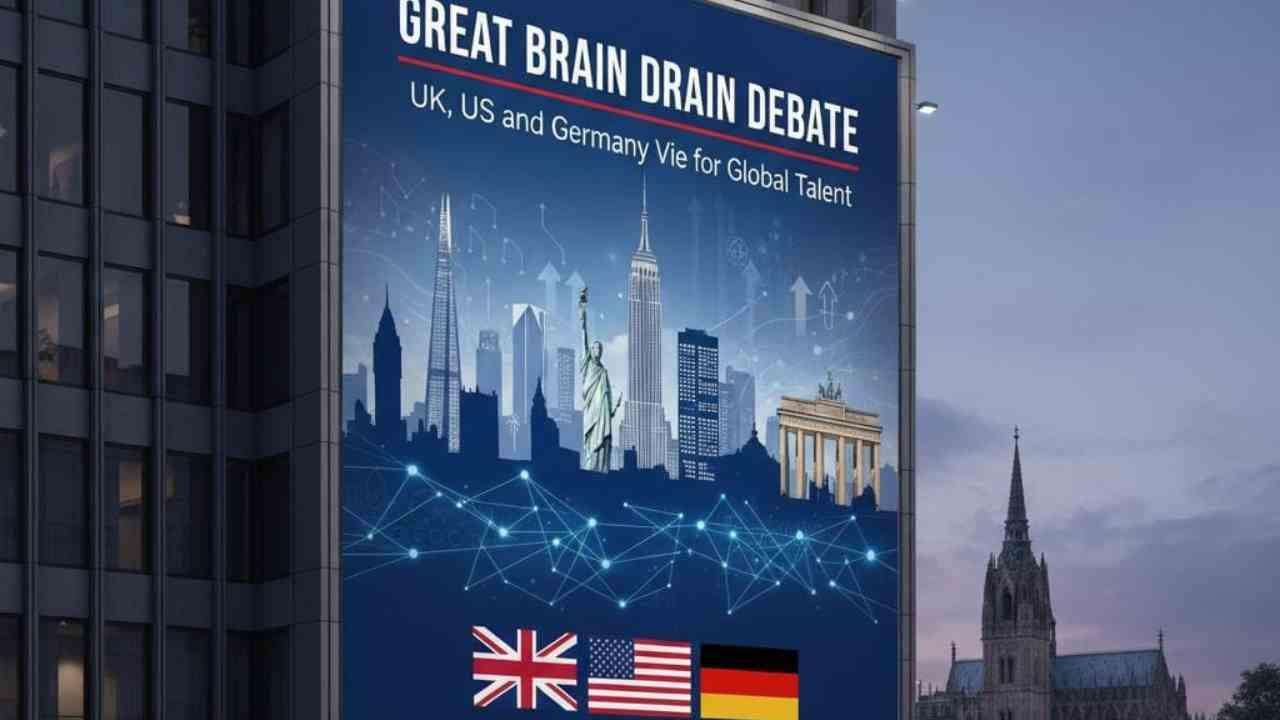The global competition for high-skilled talent has reached a fever pitch, with major economic powers adopting starkly different approaches to attract the world's brightest minds. This "battle for global talent" is not just about attracting individuals, but also about securing a nation's future economic prosperity and technological leadership.
The UK's Open Door Policy
In a bold move to make Britain a premier destination for innovators, UK Prime Minister Sir Keir Starmer has initiated discussions on a "global talent taskforce" to potentially scrap visa fees for elite scientists, academics, and digital experts. This proposal, championed by Science Minister Lord Patrick Vallance and business adviser Varun Chandra, targets individuals from the world's top universities or those with prestigious awards. The current cost of a Global Talent visa is £766 per applicant, with an additional £1,035 annual health surcharge per person. Waiving these costs is seen as a strategic response to recent actions by other countries, aiming to boost the UK's status as a hub for emerging talent and innovation. This move comes despite Starmer's government's existing policies, outlined in the May 2025 immigration white paper, which raised skilled worker salary thresholds and increased the Immigration Skills Charge.
Trump's H-1B Hammer
Across the Atlantic, US President Donald Trump's recent proclamation on September 19, 2025, has sent shockwaves through the tech industry. The executive order slaps a new annual fee of $100,000 (approximately £74,000) on new H-1B visas. This drastic increase is intended to prioritize American workers and curb perceived abuses of the H-1B program, which is heavily utilized by tech companies and relies heavily on talent from India and China. While existing visa holders are reportedly exempt, the fee applies to new applicants and takes effect with the February 2026 lottery. This move is part of the broader immigration clampdown initiated in January 2025 and is expected to face immediate legal challenges. The fee effectively transforms the H-1B program into a "pay-to-play" system, raising concerns that it will stifle innovation and exacerbate talent shortages.
Germany's Tightrope Walk
Meanwhile, Germany's Chancellor Friedrich Merz has focused his immigration agenda on a stricter approach to irregular migration and asylum seekers. While the new government, which took office in May 2025, is committed to attracting skilled foreign workers to address a stagnant economy, its primary focus has been on curbing asylum applications and increasing deportations. Merz's administration has implemented enhanced border controls and faster processing procedures for asylum seekers. This dual approach of tightening asylum policies while still needing high-skilled workers puts Germany in a delicate position, balancing public concern over migration with the undeniable need for talent to fuel its economy.
The Global Opportunity Landscape
The differing strategies of the UK, US, and Germany create a complex and dynamic landscape for global talent.
For the UK: By slashing visa costs for an elite group, the UK aims to become an attractive alternative for highly skilled professionals who are priced out or deterred by the new US policies. The move could result in a "brain gain" for Britain, rerouting thousands of workers who would have otherwise gone to the US.
For the US: The new H-1B fee, if it withstands legal challenges, could push skilled workers and tech companies to seek opportunities elsewhere. While the administration argues it protects domestic jobs, critics fear it will harm innovation and long-term competitiveness.
For Germany: While not as directly tied to the H-1B issue, Germany's focus on irregular migration could indirectly affect its reputation as an open destination for skilled professionals. The country's ability to attract top talent will depend on its success in separating its tough stance on asylum from its welcoming approach to high-skilled workers.
This international tug-of-war highlights a fundamental tension between immigration control and economic ambition. As the policies take effect, the true winners and losers in the global talent race will become clearer in the months and years to come.








.svg)



_7.jpg)